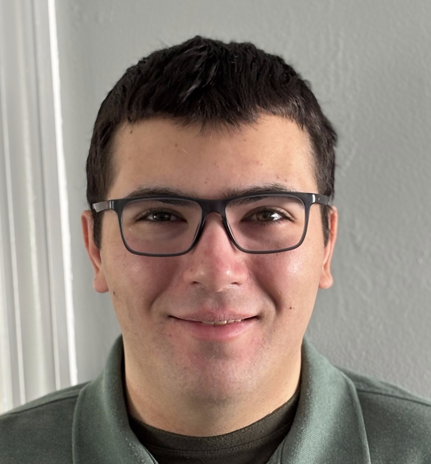Inspired by Neurorehabilitation
OT Student Nicholas Muniz Turned His Personal Journey Into a Mission to Help Others

For second-year School of Health Sciences occupational therapy (OT) student Nicholas Muniz, the path to neurorehabilitation is both personal and purposeful. Inspired by his own experience receiving occupational therapy as a child, Muniz turned his personal challenge into his motivation to help others overcome various obstacles. From earning his Certified Neuro Practitioner (CNP) certification to gaining hands-on experience at his part-time role at Northwell STARS Rehabilitation in Long Island, he’s already making strides toward a career dedicated to improving the lives of people with neurological conditions.
What sparked your interest in neurological rehabilitation?
When I was in middle school, I received OT for tremors I was experiencing. The type of therapeutic techniques these practitioners used including using wrist weights, weighted utensils, and practiced fine motor activities, and they helped me tremendously. That experience inspired me to help others manage their own neurological conditions, as I saw firsthand that even small improvements can have a major positive impact on someone’s life.
Congratulations on earning your Certified Neuro Practitioner (CNP) certification! What inspired you to pursue this additional credential while earning your degree?
Taking Dr. Dmytryk’s neurorehabilitation class helped me to understand how the brain and nervous system influence movement, behavior, and occupational performance. It strengthened my clinical reasoning and helped me connect what I learned in neuro to other classes such as physical disabilities.
After Dr. Dmytryk witnessed my growing interest in neurorehabilitation, he told me about this certification and encouraged me to do some research on it. It seemed like a great opportunity to build my skillset and stand out when applying for future fieldwork opportunities. The certification covered topics like abnormal tone, range of motion, and weight-bearing techniques. It takes about five hours to complete, followed by an exam that you must pass to receive the certification. It really enhanced my understanding of key neurorehabilitation principles.
How has shadowing professionals in the field shaped your understanding of neurological rehabilitation?
I have shadowed in the neurorehabilitation department at Northwell STARS Outpatient, which has been an eye-opening experience. It helped me understand the wide range of diagnoses and treatment options, and it’s where I discovered my passion for working with spinal cord injuries. The work is complex and highly individualized, and I enjoy the one-on-one relationships you build with patients.
I also work part-time as an aide at STARS, and I’ve met some incredible clients along the way. One client was paralyzed after a skiing accident and is now learning to new skills through the use of adaptive equipment, and another is part of a groundbreaking brain-computer interface program using AI and sensors to restore movement. Witnessing how OTs can transform a client’s life has been deeply inspiring!
Are you involved in any student-led organizations at Touro?
I’m a member of the Student Occupational Therapy Association (SOTA) and currently serve as treasurer. My responsibilities include managing the budget, attending monthly meetings, and helping to plan events for our members. It’s rewarding to be part of a group that supports professional growth and community engagement among students.
What advice would you give to students interested in specializing in neurology or pursuing advanced certifications?
If neurology is your passion, go for it. Take advantage of every opportunity to get certified or gain extra training while you’re still a student; it will prepare you for fieldwork and help you advance your career.
Looking ahead, what is your dream career and how do you hope to make an impact in the field?
My dream is to work in the neuro department of an intensive rehabilitation center. I want to advance neurorehabilitation by integrating technology into the recovery process and helping clients with neurological conditions regain their independence. I also hope to create a community-based adaptive program that combines rehabilitation with social interaction so people with disabilities can live fuller, more meaningful lives.

